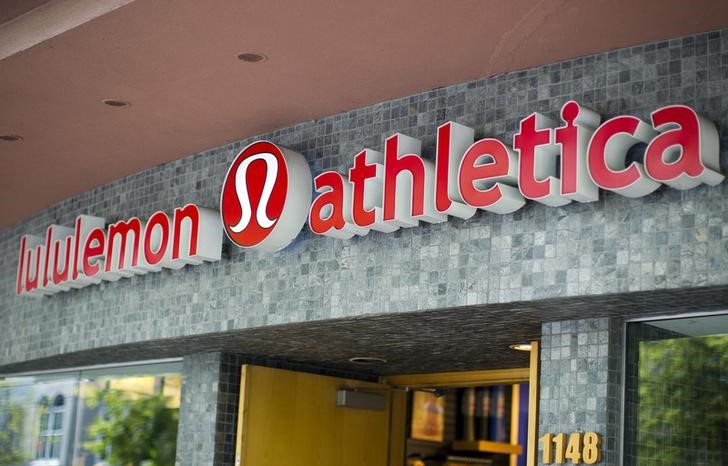Five things to watch in markets in the week ahead
Investing.com - Shares in Lululemon Athletica (NASDAQ:LULU) slumped by 22% in premarket U.S. trading on Friday, after the athleisure apparel retailer cut its annual profit guidance as it grapples with a tariff-driven uptick in costs and weaker demand.
In a statement, Lululemon said that store traffic in the Americas was lower, partially reflecting "economic uncertainty, inflationary pressures, lower consumer confidence, and changes in discretionary spending".
Investors have recently flagged worries that murkiness around the impact of U.S. President Donald Trump’s aggressive tariff agenda could persuade many shoppers to rein in expenditures on pricier items and focus on essential products.
Against this backdrop, the company slashed its earnings per share forecast to a range of $14.58 to $14.78, down from $14.95 to $15.15 previously, and continues to expect revenue in the range of $11.150 billion to $11.300 billion.
Speaking to analysts in a post-earnings call, CFO Meghan Frank said Lululemon is planning to take "strategic price increases" to help mitigate the impact of the tariffs, adding that the hikes will be "modest in nature" and on "a small portion of our assortment".
In a note to clients, analysts at KeyBanc Capital Markets argued that Lululemon’s positioning as a seller of "premium" products will help support the business in the "current macro environment". The strategists led by Ashley Owens added the Lululemon’s first-quarter results were "solid", saying they were "encouraged" the potential of new product offerings to become "future core franchises".
Earnings per share (EPS) for the period came in at $2.60 on revenue of $2.37 billion. Analysts polled by Investing.com anticipated EPS of $2.59 on revenue of $2.37 billion. Overall comparable sales increased 1%, weighed down by a 2% decrease in its Americas market.
For the current quarter, adjusted EPS is expected to be in the range of $2.85 to $2.90 on revenue of between $2.535 billion to $2.560 billion, compared with estimates of $3.32 and $2.57 billion, respectively.
(Yasin Ebrahim contributed reporting.)
